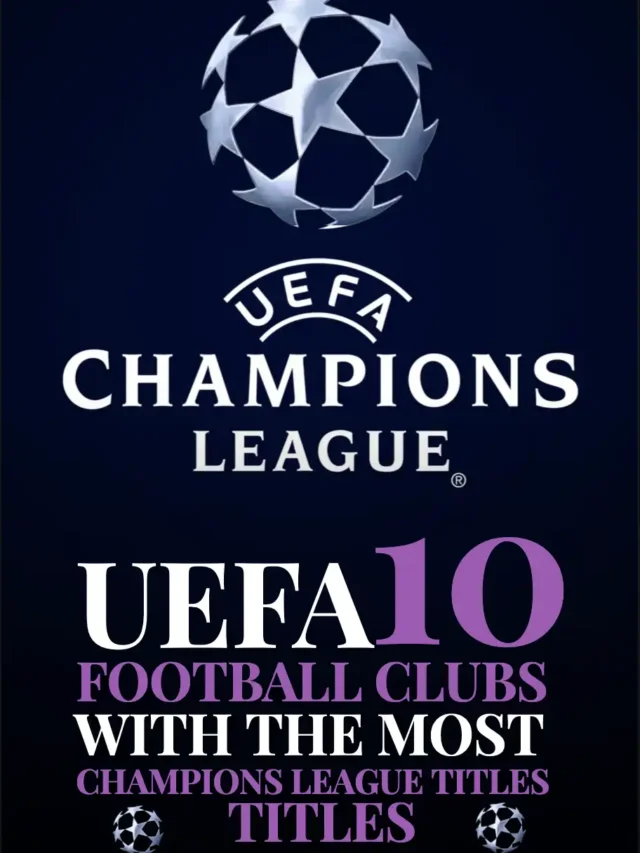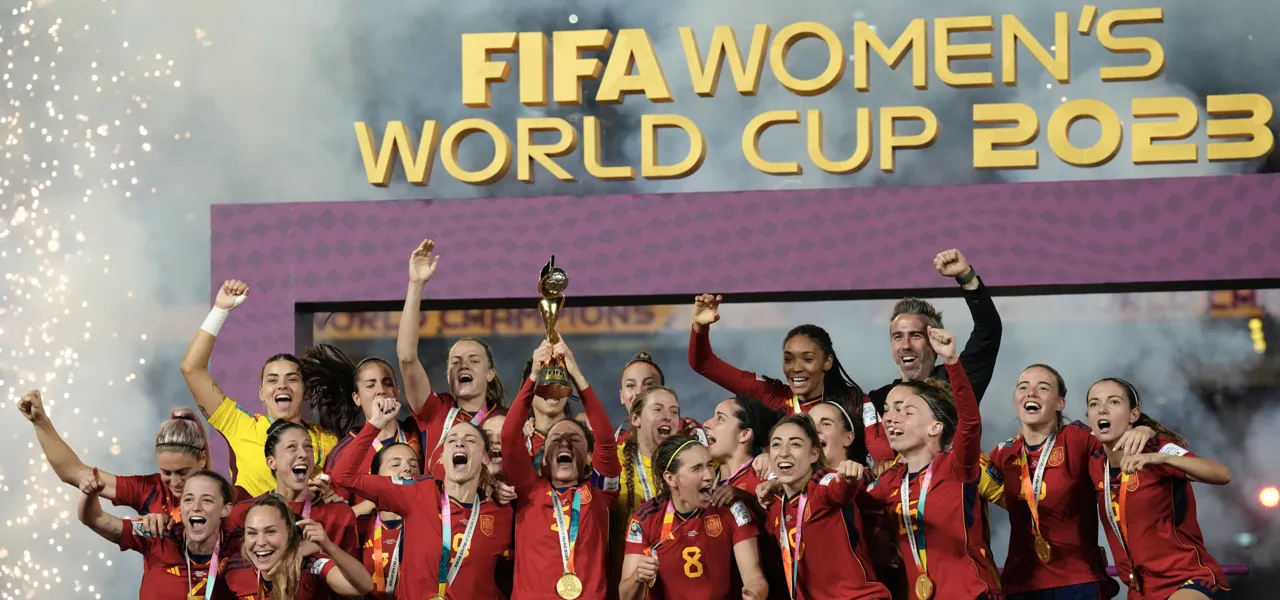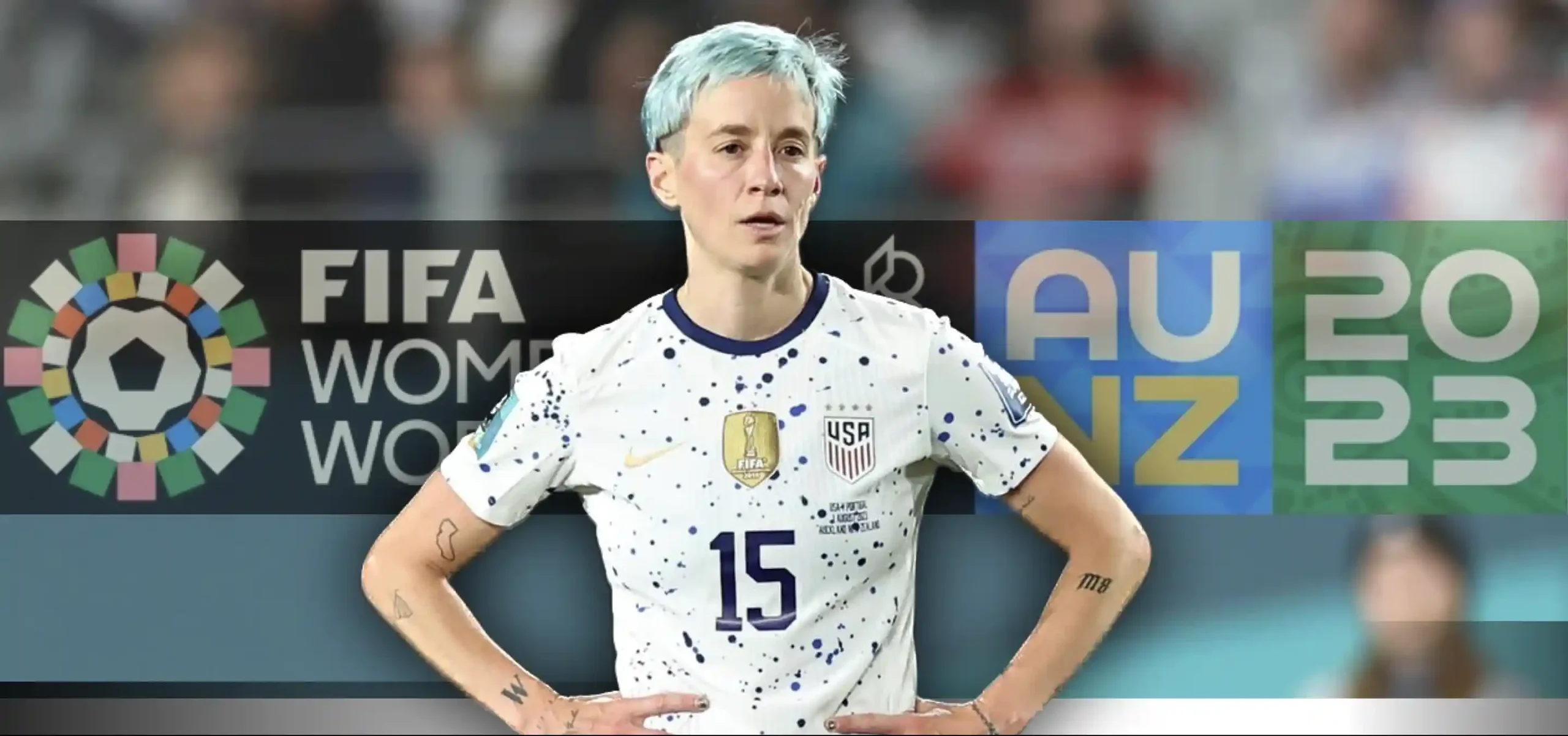Soccer, or football as it is known in most parts of the world, is more than just a game. It has become a global phenomenon, attracting audiences across continents and cultures.
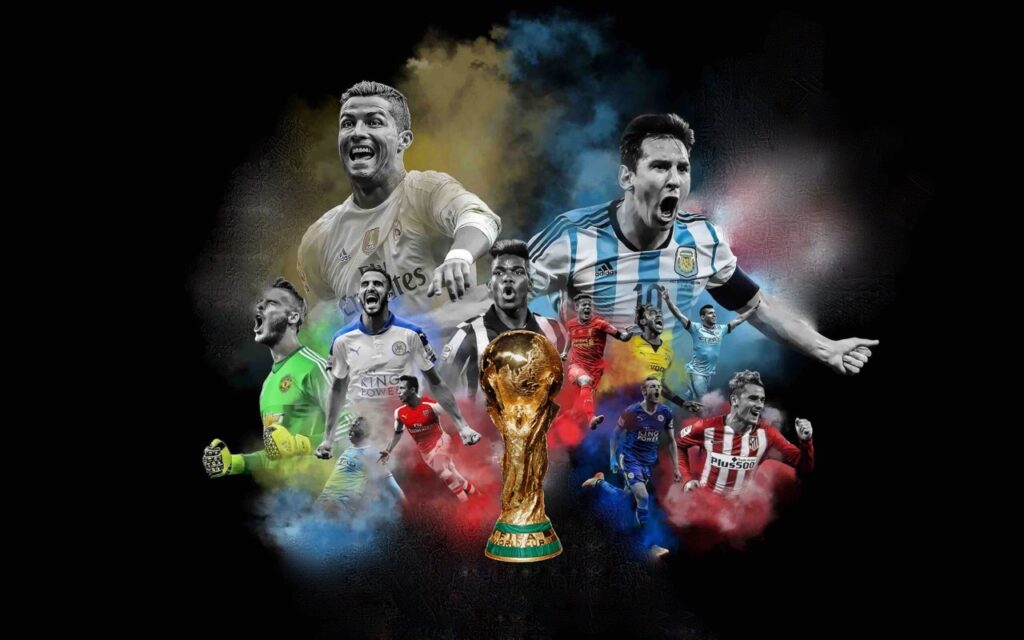
Credit: Google
With its rich history and legendary players, soccer has evolved into the biggest sporting event on the planet, reaching new heights of popularity and expanding its reach considerably. In recent years, the rise of women’s football has given this global play a new dimension. We delve into the fascinating journey of football and explore its evolution as a cultural phenomenon.
The history of football goes back centuries, ancient civilizations played different forms of the game. However, in 1863, football as we know it today took shape when the Football Association (FA) was founded in England. The FA established the rules and regulations that formed the basis of the modern game.
Scotland vs England, published in 1875 in the Illustrated Sporting and Dramatic News.
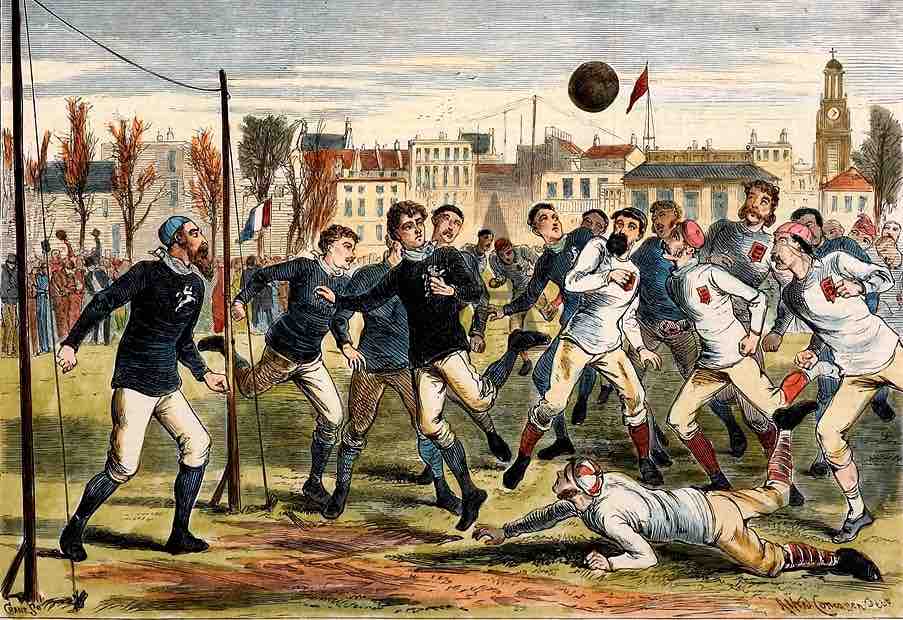
As football became popular in England, it quickly spread to the rest of Europe thanks to British merchants, sailors and soldiers who took the game with them wherever they went.
The global expansion of sports is driven by a number of factors. Technological development has played an important role, especially in the field of transport and communication. As the world became more interconnected, football found its way into new territories and fascinated people from different backgrounds. The creation of international competitions and leagues further encouraged the growth of the sport as teams from different countries competed against each other, igniting passionate rivalries and taking the game to new heights of popularity.
The 4th goal of Uruguay v. Argentina national team scored by Héctor Castro.
One of the most important moments in soccer history was the start of the Soccer World Cup in 1930.
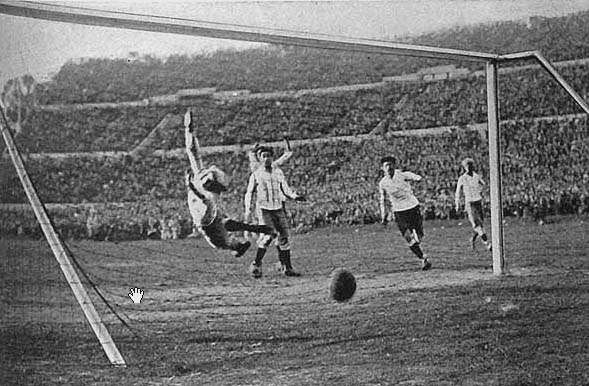
Held every four years, this prestigious tournament united nations around the world in a fierce competition for soccer supremacy. The FIFA World Cup became the ultimate stage for players to showcase their skills and for nations to demonstrate their footballing prowess. With each edition, the World Cup has captured the imagination of millions and has become the most watched sporting event in the world. The tournament acted as a catalyst for the exponential growth of football and cemented its status as a global phenomenon.
Over the years, soccer has grown with iconic players who have left an indelible mark on the sport.
Credit: Flickr
Legends like Pelé,

Credit: Wikimedia Commons

Diego Maradona and
Credit: Wikimedia Commons
Johan Cruyff graced the play ground with their extraordinary skills that has inspired generations.
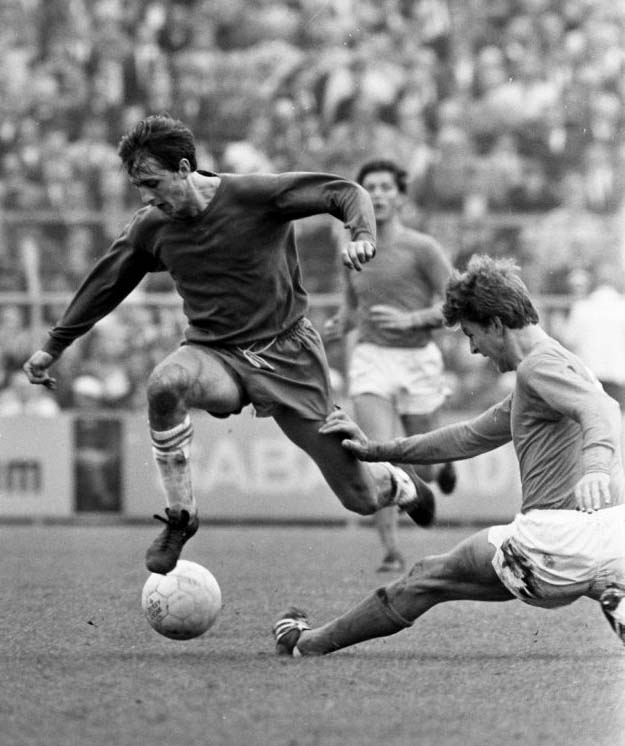
Their influence extended beyond the game itself, crossing cultures and capturing the hearts of fans around the world. These football greats became ambassadors for the sport, spreading its appeal and contributing to its ever-growing popularity.
In recent times, women’s soccer has experienced tremendous growth and recognition. The United States Women’s National Team (USWNT) is an excellent example of the development of women’s soccer. With notable achievements, including multiple World Cup victories, the USWNT has not only raised the profile of women’s soccer, but also contributed to gender equality in the sport.
Credit: Wikimedia Commons

FIFA Women’s World Cup 2019 Final US team on podium
The success of women’s football has inspired millions of young girls around the world, nurtured a new generation of talented players and increased the overall popularity and acceptance of the women’s game.
Credit: Google
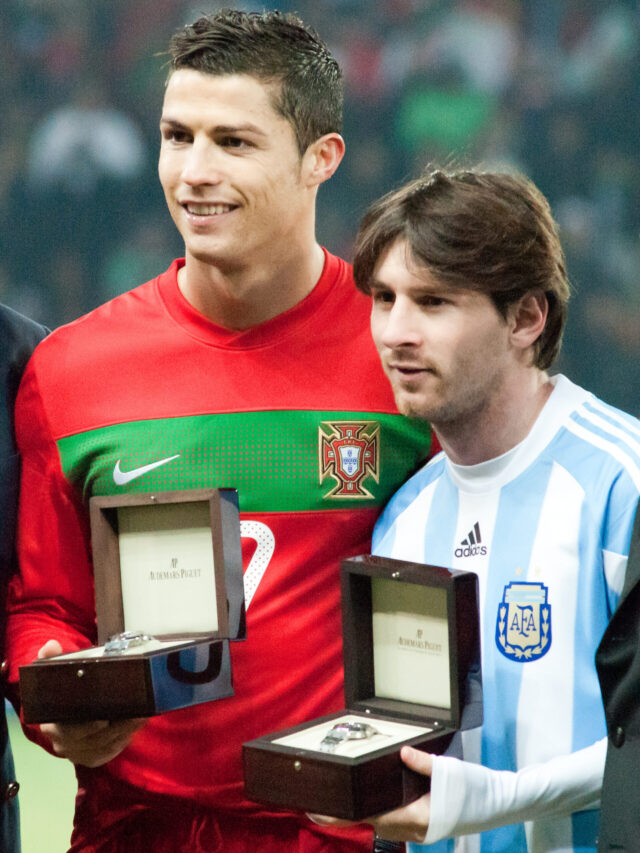
In the present era, football boasts a galaxy of stars on both the men’s and women’s sides. Lionel Messi and Cristiano Ronaldo have dominated men’s football for over a decade, showcasing their extraordinary talents and setting new records.
Credit: Google
On the women’s side, there are well-known players like Megan Rapinoe, Alex Morgan and Marta Vieira da Silva who have become household names and captured the imagination of fans with their skill and passion for the game
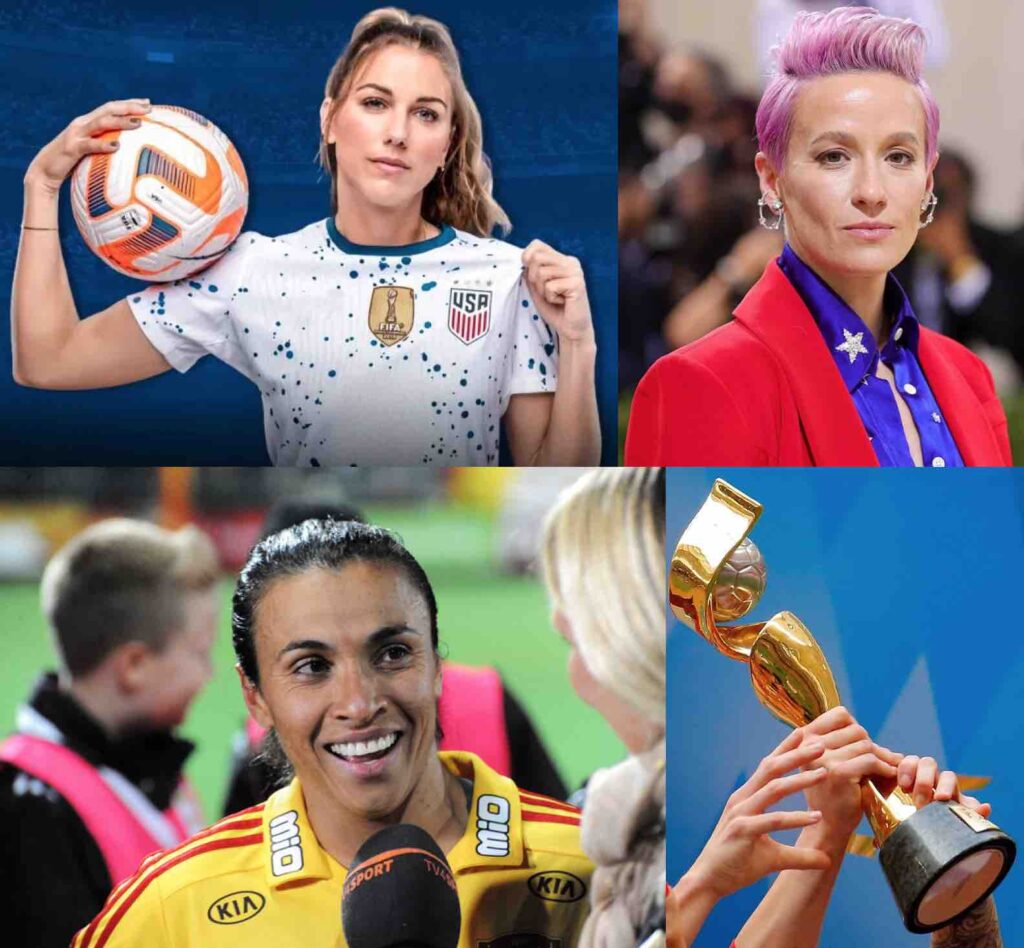
These players, like many others, helped bring soccer to a whole new level of excellence and entertainment.
The 2023 FIFA World Cup in Qatar marked an important chapter in football history, enthralling fans around the world and leaving a lasting impact on the sport. As the most watched and followed sporting event on the planet, the tournament attracted an estimated five billion viewers in 200+ nations, reaffirming the universal appeal and cultural significance of soccer.
Some of the world’s most iconic football stars took to the stage at the 2023 World Cup, showcasing their extraordinary skills and adding to the magic of the tournament.
Credit: Google

Players such as England’s Harry Kane, France’s Kylian Mbappe, Brazil’s Neymar, Portugal’s Cristiano Ronaldo and Argentina’s Lionel Messi have attracted huge attention and expectations as they try to lead their country to glory.
The mix of seasoned veterans and up-coming talent was a tight competition, providing fans with exciting moments and unforgettable performances.
The growing participation of Asian countries, including host Qatar, highlighted the global nature of sport and its ability to inspire and engage people around the world. The tournament also showcased the growing presence of women’s football as the success and popularity of the women’s game continued to gain momentum. The inclusive spirit of the World Cup resonated with fans, increasing the appreciation of equality and representation in sport.
As the host nation, Qatar has invested around $229 billion in preparations for the World Cup, including the construction of state-of-the-art stadiums, infrastructure development and extensive residential facilities. The aim of this significant investment was to create a memorable and immersive experience for players and spectators alike, leaving a lasting legacy for the country’s future sporting endevours.
Credit: Google
The tournament demonstrated Qatar’s commitment to sport and its ambitions to become a global hub for major sporting events.

In addition to economic and infrastructural impacts, the 2023 FIFA World Cup also had a profound social and cultural impact. The event brought together different nationalities and cultures and created a sense of unity and friendship among fans around the world. The tournament provided a forum for dialogue and understanding that transcended political and social boundaries. Soccer has a unique ability to connect people and create shared experiences, and the FIFA World Cup has demonstrated this power by bringing people from all walks of life together to celebrate the beautiful game.
WEB STORIES FOR YOU
Stay connected with Today On Globe for the latest Global Issues and News Updates.
Explore more related articles at [TOG News / TOG Article]







